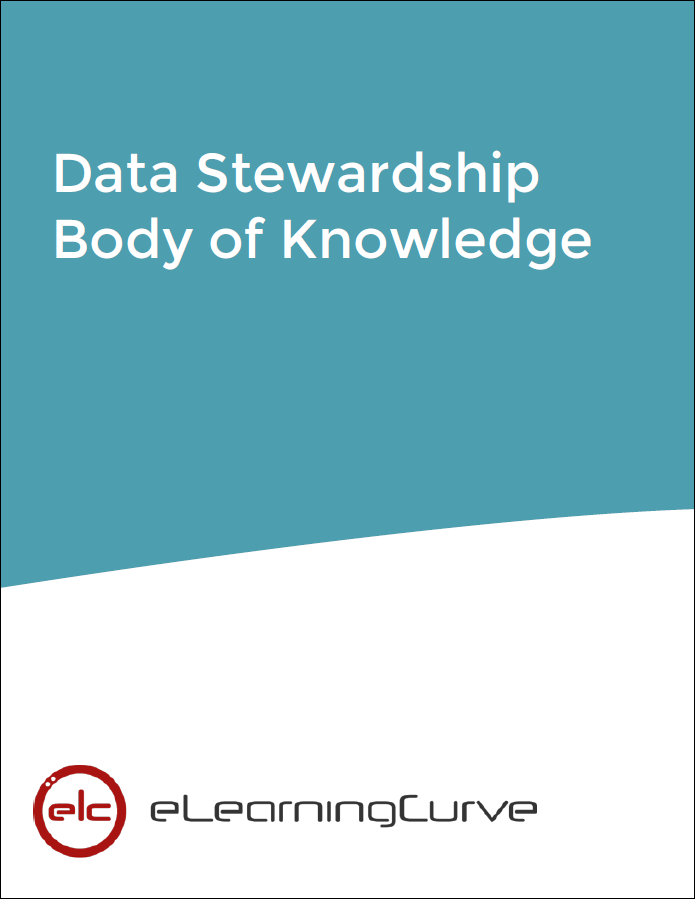Body of Knowledge
|
The Data Stewardship Body of Knowledge (DSBOK) is a structured comprehensive list of topics comprising the data stewardship professional domain. It was created in collaboration between the leading experts and educators in the field and members of the CDS Advisory Council under the leadership of Arkady Maydanchik, Maria C Villar, and David Wells.
eLearningCurve's
Certified Data Steward Program includes a comprehensive set of online courses and education packages covering all topics in the Data Stewardship Body of Knowledge, as well as professional certification for the data stewards.
Presented below is an outline of the DSBOK. Click on the image to the right to download the complete document.
|

|
1. Data Stewardship Fundamentals
1.1. Definitions
1.2. Data Stewardship Organizations
1.3. Data Steward Characteristics
2. Data Management Processes
2.1. Architectural Processes
2.2. Utilization Processes (CRUD)
2.3. Custodial Processes
2.4. Data Lifecycle Processes and Enabling Technologies
2.5. Data Sharing
2.6. Data Risk Management
3. Information Management Concepts
3.1. Types of Data and Information
3.2. Types of Data Stores
3.3. Types of Databases
3.4. Common Uses of Data
3.5. Business Data Flow
3.6. Information Management Disciplines
3.7 Data Analytics
4. Data Quality
4.1. Quality Management Basics
4.2. Data Quality Concepts and Principles
4.3. Data Quality Dimensions
4.4. Data Quality Processes and Projects
4.5. Data Quality in IT Processes and Projects
4.6. Data Quality for Big Data
4.7. Measuring Data Quality
5. Data Integration
5.1. Data Integration Processes
5.2. Data Integration Methods
5.3. Data Freshness
5.4. Ensuring Data Quality in Data Integration
6. Data Governance
6.1. Data Governance Basics
6.2. Components of Data Governance
6.3. Data Governance Programs
6.4. Executing Data Governance
6.5. Data and Capabilities
6.6. Data Literacy
6.7. Modernizing Data Governance
7. Metadata Management
7.1. Metadata Concepts
7.2. Data Modeling
7.3. Data Profiling
7.4. Data Curation and Cataloging
7.5. Taxonomies and Ontologies
8. Master and Reference Data Management
8.1. Master Data Management (MDM) Basics
8.2. Data Parsing, Matching, and De-Duplication
8.3. Reference Data
8.4. Global Data
|